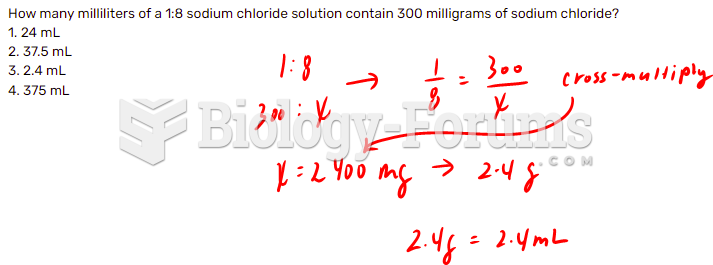|
|
|
Human stomach acid is strong enough to dissolve small pieces of metal such as razor blades or staples.
Asthma-like symptoms were first recorded about 3,500 years ago in Egypt. The first manuscript specifically written about asthma was in the year 1190, describing a condition characterized by sudden breathlessness. The treatments listed in this manuscript include chicken soup, herbs, and sexual abstinence.
The familiar sounds of your heart are made by the heart's valves as they open and close.
Human kidneys will clean about 1 million gallons of blood in an average lifetime.
Patients should never assume they are being given the appropriate drugs. They should make sure they know which drugs are being prescribed, and always double-check that the drugs received match the prescription.







